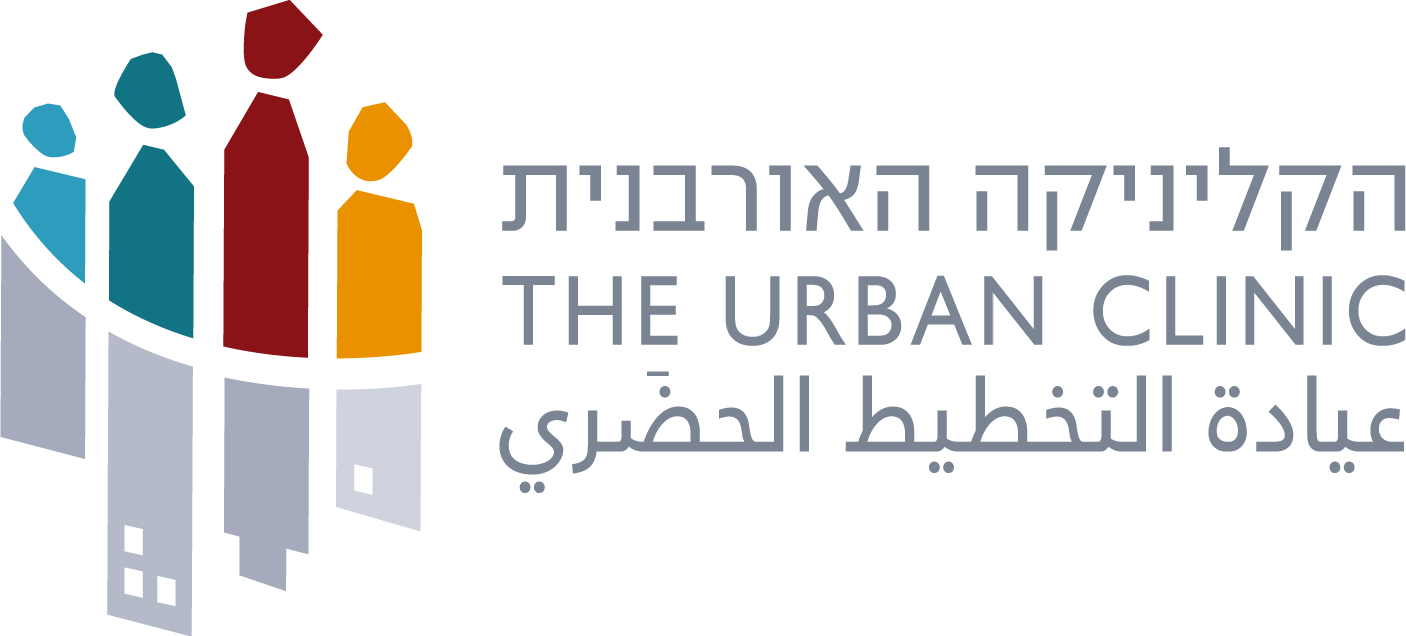This year the Urban Clinic was commissioned to deliver a series of four day-long training workshops for all 33 Jerusalem municipal community planners and their partners in the municipal planning department. The role of ‘community planner’ is very special in Jerusalem: these professionals are embedded within a community center/council, and charged with adapting city-wide spatial planning to the social nuances of their specific neighborhood. Their work involves leading neighborhood committees, responding to plans, and initiating new projects.
Our work evolved from recent MA thesis research investigating the changing role of the Jerusalem community planner over time, by talented MA graduate and former Urban Clinic staff Galya Globerman.
In our first session, we probed ‘what is success’ in community planning, and what are the strategies, tools, and knowledge needed to achieve success? We used the US model of Community Development Corporations to distinguish across the strategies of service provision, community organizing, advocacy and community development. The Jerusalem community councils offer an extraordinary opportunity to engage in all four strategies.
In our second session, held together with the municipal department for planning policy, we probed ‘what is success?’ in community planning, and what are the strategies, tools, and knowledge needed to achieve success. We introduced the Theory of Change model, and demonstrated it through a Jerusalem success story in which community planning led to a series of new neighborhood parks.

Our third session featured a key-note by the director of planning in Jerusalem, himself a former neighborhood community planner. For the first time, Roi Lavie set out his vision for community planners and the challenges ahead, captured in our detailed summary (available in Hebrew on our website ). Together we mapped Roi’s vision onto a typology of six community planner archetypes as identified in the research, and each person identified their current status, and their desired future roles.
The fourth and final meeting gave us the opportunity to apply our learning on a key proposed new Jerusalem project. After a deeply ideological introduction to social urbanism as exemplified in Medellin, Colombia, we heard from the Jerusalem Transport Master Planning team about their plans for escalators and elevators to connect neighborhoods to the new Light Rail routes. The community planners offered abundant suggestions for change, to better reflect residents’ real needs at these sites.
The role of community planners in Jerusalem is at a cross-roads. To strengthen their capacities and impact, in 2025 the Urban Clinic will be hiring the first -ever Director of Community Planning, in partnership with the municipality and with the Israel Association of Community Centers, and thanks to a generous philanthropic grant. More on this as it evolves!

